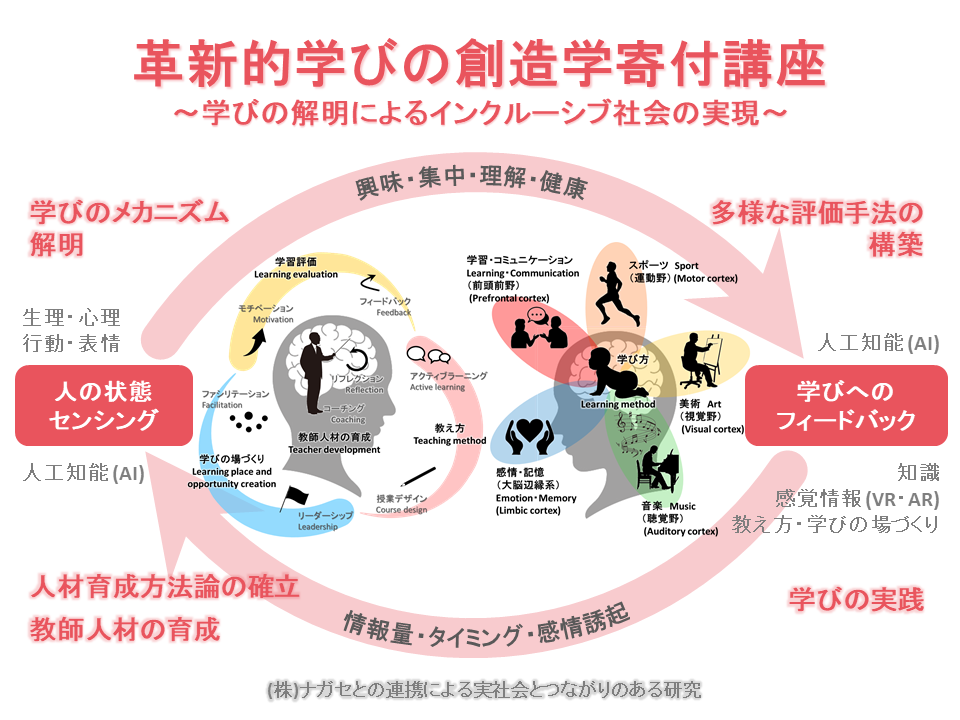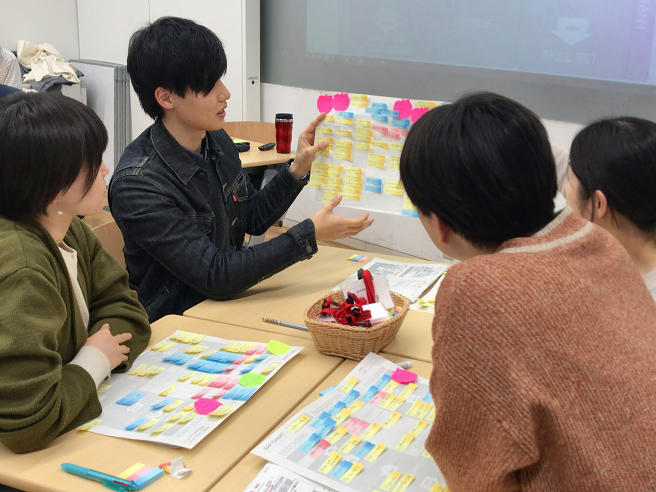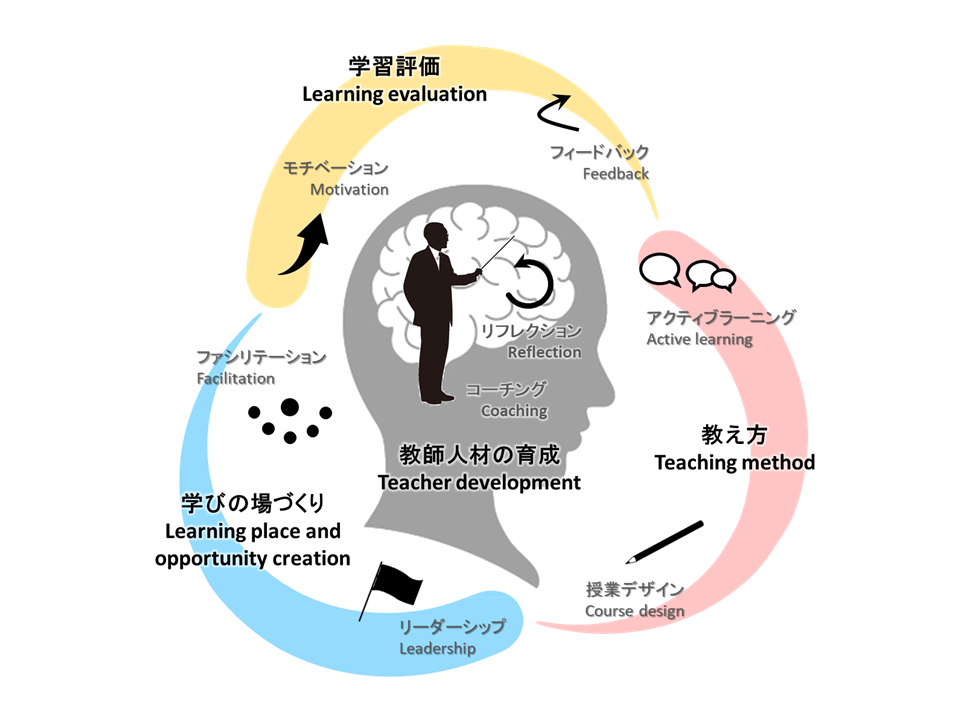RESEARCH
In this course, we will create an innovative “Learning” aiming to realize an inclusive society where everyone can play active roles in the super smart society (Society 5.0). We will also establish a methodology for developing diverse human resources and explore sharing methods with novel evaluation axes by clarifying the mechanism of human “Learning”. Specifically, we will systematize methods for sensing human physiological and psychological condition, effective feedback methods for learning, and multiple evaluation methods by focusing on human “Learning”.
Our research areas are based on knowledge of ergonomics (human factors), pedagogics, human interface, and technologies of signal processing, AI, XR and more. Our goal is to combine those knowledge and technologies to develop human-centered learning system. In addition, this course features efficient and speedy research suitable for real world by cooperation with Nagase Brothers Inc.

Links
Lab introduction
Introduction movie of our research policy, purpose, and the experiment tools.
Facial expression measurement
Facial expression measurement with analyzing facial images taken by a web camera and detecting facial feature points.
Facial expression is one of the features of understanding the states of mind and personalities of both learners and teachers.
Learners’ concentration and motivation states are important to develop an innovative learning system.
Emotion estimation from facial expression
Emotions are estimated by applying machine learning to facial expressions (feature points).
We challenge to estimate several emotions based on the estimation of 7 basic emotions (angry, disgust, fear, happy, sad, surprise, and neutral).
Our aim is to elucidate new knowledge about what kind of emotions occur during learning and what kind of emotions improve the learning effect.
Learning place and opportunity creation

Research for teaching methods based on learning science

